#Frank Kermode
Explore tagged Tumblr posts
Text
"We have to distinguish between myths and fictions. Fictions can degenerate into myths whenever they are not consciously held to be fictive. In this sense anti-Semitism is a degenerate fiction, a myth; and [King] Lear is a fiction. Myth operates within the diagrams of ritual, which presupposes total and adequate explanations of things as they are and were; it is a sequence of radically unchangeable gestures. Fictions are for finding things out, and they change as the needs of sense-making change. Myths are the agents of stability, fictions the agents of change. Myths call for absolute, fictions for conditional assent. Myths make sense in terms of a lost order of time, illud tempus as Eliade calls it; fictions, if successful, make sense of the here and now, hoc tempus."
-Frank Kermode, The Sense of an Ending
Getting past the initial irony of Kermode using "degenerate" here to critique myths while also noting anti-semitism as such a kind of myth, this is a great summary of how I feel about the current way a lot of people are talking about fiction; it pisses me off to no end that we (broadly culturally speaking - I'm talking about your layperson's media comprehension here, not what takes place in universities) seem to have retreated into a kind of neo-Campbellist/neo-Jungian treatment of fiction as myth by default when Kermode is basically saying the modern impulse should be to try and distinguish fiction from myth as much as possible, something that I feel like I couldn't articulate well before but strongly agree with. Basically, the "mythical" treatment is the literary equivalent of "reject modernity, embrace tradition" (which I hope everyone reading this realizes is a reactionary conservative meme, right? Because I feel like I see people sharing things with that slogan unironically at an alarmingly increasing rate these days).
5 notes
·
View notes
Text
Dear Kairos | Simon Bray
















Created over two weeks on the streets of Athens, ‘Dear Kairos’ is a letter to the Ancient Greek considerations of time. The viewer is invited to consider the Kronos, the linear, mechanistic and determined passing of clock and calendar time, and the Kairos, serendipitous, opportunistic and boundless time. Through the use of repeated scenes and careful sequencing, ‘Dear Kairos’ creates a dialogue between the regular passing of time and moments loaded with significance that can be pushed through and embraced in order to distinguish, as Frank Kermode writes, “between mere chronicity and times which are concordant and full”.
website
instagram
twitter
book - 'Dear Kairos' has recently been released as a photobook by the excellent Skinnerboox. You can see a few images of the book below - highly recommended folks!
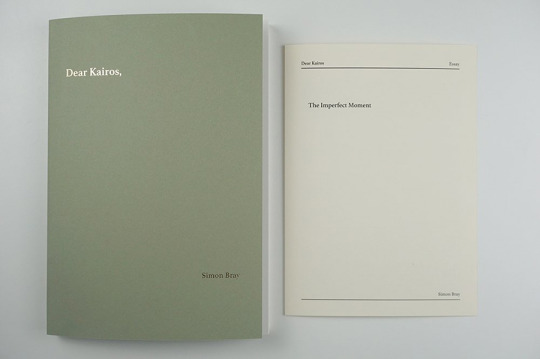
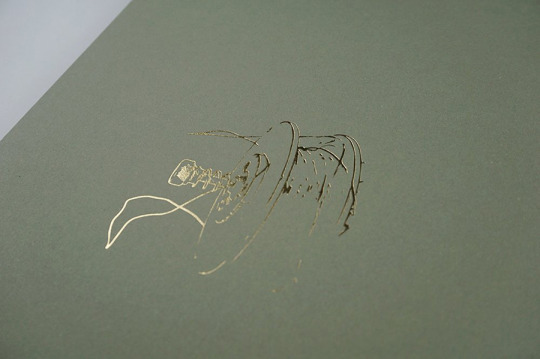




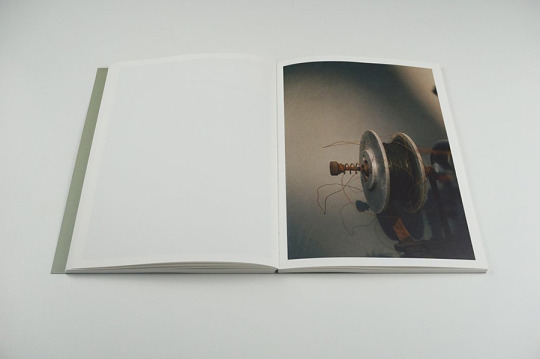

All images & text © Simon Bray
39 notes
·
View notes
Text


Harcourt Manor
2178 Harcourt Drive
Cleveland Heights, OH
Harcourt Manor, located at 2178 Harcourt Drive in Cleveland Heights, OH, part of the Ambler Heights Historic District, is a 10,050-square-foot, four-story Elizabethan Tudor Revival style mansion designed by architect Frank Meade for $37,000. Kermode F. Gill built the home between 1910 and 1915. Gill’s company, John Gill and Sons, also built the Allen Theatre (1921) and the Terminal Tower (1927). The stone house featured massive chimneys, a crenelated central tower with a slate roof, and a half-timbered prominent gable. The façade featured an unusual small auxiliary wing with a garage. Coffered ceilings and sumptuous woodwork were included in each of the imposing large-scale interiors. The mansion had a ballroom, gymnasium, large foyer, marbled tiled morning room, seven fireplaces, and eight bedrooms.
The Gills resided in the mansion until 1954 when Dorthea died. It was then sold to the Herget family. Three generations of Hergets lived in the home. They kept its original style and fixtures, but added a secret room, hidden behind a bookcase, to the fourth floor. In 2011, the Hergets listed the home on Howard Hanna; News 5 Cleveland (2013), and the Cleveland Plain Dealer (2016) covered its sale. It sat vacant until 2016 when John and Anya Rudd purchased it for $565,000 from James P. Herget. The Rudds spent the next four years undertaking a comprehensive restoration of the property and grounds.
New landscaping was designed by David Thorne of DTR Associates, using photos of the original gardens. The gardens took three years for Exscape Designs to install and build. Architect Richard Gates designed and constructed a pool house and spa, and the manor’s new exterior areas also include a koi pond, pergola, and fountains; the manor's original sculptures, iron gates, potter’s shed, and stone summer house were retained and restored. The restoration work was covered in numerous news and design publications and the Rudds received the AIA Craftsmanship Award from the Cleveland Restoration Society in 2019. Although privately owned, Harcourt Manor is made available to the community at large for use in fundraisers and other social functions.
3 notes
·
View notes
Text
My ideas for Just Dance 2 Animal AU
It’s Raining Men/Lari = Turtle.
TikTok/Kayla = Shiba Inu.
A-Punk/Thomas & Mia = Dog & Cat.
I Got You (I Feel Good)/Benjamin = Kermode Bear.
When I Grow Up/Lady = Flamingo.
Toxic/Ivy = Siamese.
Idealistic/Neona = Bat.
Girlfriend/Amy & Matilda = Fox & Rabbit.
S.O.S./Anzia = Coyote.
Dagomba = Asiatic Golden Cat.
Move Your Feet/Charlie = Iguana.
Proud Mary/Mary = Ostrich.
Hot Stuff/Nelly & Benny = Apes.
Big Girl (You Are Beautiful)/Laura = Hippopotamus.
I Want You Back/Thor = Quagga.
Iko Iko/Arizona = Crocodile.
Katti Kalandal/Veena & Manjul = Elephants.
Holiday/Goldie = Hyena.
Call Me/Samara = Labrador.
Sway (Quién Será)/Arista & Quinn = Swans.
Satisfaction/Isaac = Leopard.
Hey Ya!/Moses = Monkey.
Mugsy Baloney/Nia & Callum = Gazelle & Dolphin.
Baby Girl/Matthew (Matt) = Owl.
Jungle Boogie/Harry = Cheetah.
Crazy in Love/Anjia = Poodle.
Soul Bossa Nove/Aleena & Sam = Parrot & Red Wolf.
D.A.N.C.E./Lime = Toucan.
Sympathy for the Devil/Auli'i = Devon Rex.
Rasputin/Boris = Bull.
Jump in the Line/Caroline & Alexa = Giraffe & Arctic Fox.
Wake Me Up Before You Go-Go/Eric = Gazelle.
Walk Like an Egyptian/Rula = Camel.
The Power/Khalid = Otter.
Jump/Momoe & Graham = Gray Foxes.
Monster Mash/Frank = Elk.
Take Me Out/Pyra = Octopus.
That's Not My Name/Jane = Rabbit.
The Shoop Shoop Song/Marie & Svetlanta = Gazelle & Coyote.
Cosmic Girl/Mariana = Panda.
Body Movin'/Juliana = Venom Snake.
Viva Las Vegas/Sebastian = Crab.
Alright/Amanda & Dan = Siamese & Monk Parakeet.
Rockafeller Skank/Kevin (Or you can call him DJ DNC3) = Skunk.
Should I Stay or Should I Go?/Rob = Red Wolf.
Funkytown/Oob = Darwin Frog.
Jai Ho! (You are my Destiny)/Kammi = Indian Leopard.
Firework/Icy = Fox.
Pon de Replay/Yui = Hyena.
Barbie Girl/Diva & Rex = Swam & Wolf.
Pump Up the Volume/Mikey = Hedgehog.
Maniac/Isabella = Flamingo.
Born to be Wild/Wolf = Wolf.
Professor Pumplestickle/Zeka & Pumplehead = Coyote & Frog.
Crying Blood/Miranda = Dalmation.
Down by the Riverside/Jennifer = Dove.
Fuetbol Crazy/Alice = Savannah.
Kung fu Fighting/Master Mantis & Dawn = Goat & Tiger.
Mambo No. 5 (A Little Bit of Monika)/Steve & Elsa = Bear & .
Nine in the Afternoon/Mona & Jake = Cat & Dog.
It’s not Unusual/William = Pug.
Chicken Payback/Louis = Jersey Giant Chicken.
Crazy Christmas/Santa = Reindeer.
Skin to Skin/Perry = Parrot.
You Can’t Hurry Love/Gigi & Lily = Dolphins.
Why oh Why?/Michelle and Howard = Bear & Red Robin Bird.
American Boy/Taio & Julia = Owl & Jaybird.
Come on, Eileen/Soraya & Lucky = Fawn & Mouse.
Song 2/Zack, Bianca, & Josh = Deer, Penguin, & Arctic Wolf.
Spice Up Your Life/Jazzy & Pink = Peacock & Squirrel.
Here Comes the Hotstepper/Shaun = Rabbid.
Movin' on Up/Mindy = Snake.
6 notes
·
View notes
Text
Συγγραφέας: Έλιοτ Τ. Σ. ISBN: 9789601684581 Εκδοτικός οίκος: Πατάκη Σελίδες: 176 Διαστάσεις: 14x20.5 Έτος έκδοσης: 2020
0 notes
Quote
The whole idea of dramatic character is forever changed by [Hamlet]. Claudius is wonderfully rendered, but is still a guilty tyrant and usurper; Polonius is a garrulous bore, a crafty operator and spymaster, yet a respected statesman; we think we know the type or put together from experience a good idea of it, but no one much like Hamlet ever existed before... To take him as the herald of a new age is neither idolatrous nor hyperbolical... The new mastery is a mastery of the ambiguous, the unexpected, of conflicting evidence and semantic audacity. We are challenged to make sense, even mocked if we fail.
Frank Kermode on Hamlet in Shakespeare’s Language
37 notes
·
View notes
Photo

Untitled Project: Robert Smithson Library & Book Club [Kermode, Frank, The Sense of an Ending: Studies in the Theory of Fiction, 1967] Oil paint on carved wood, 2018
#LITERARY CRITICISM#LITERATURE#CRITICISM#FRANK KERMODE#KERMODE#THE SENSE OF AN ENDING#THEORY OF FICTION#THEORY#FICTION#HARDCOVER#1967#AVAILABLE
1 note
·
View note
Text
I was a freshman the year Frank Kermode delivered the Norton lectures at Harvard - what was later published as The Genesis of Secrecy: On the Interpretation of Narrative.
I have a visceral memory of sitting in the lecture hall as Kermode talked about the puzzling presence in a passage in the Gospel of Mark of a boy (who, as I recall, runs off without his clothes?). Kermode asked, "Why are narratives obscure?" and then went on to say that they are obscure in order to reward those of us who stick with them enough to "get" their inner meaning. And he said that in the case of the gospels of Jesus, the fact that the parables were often puzzling rather obvious was part of how they worked: it was not a bug, it was a feature. The reward came when you "got" that they were about unpacking what might possibly be meant by the phrase "the Kingdom of Heaven."
This provocation from Kermode -- and invitation to search for the meaning of "the Kingdom of Heaven" -- changed my life.
I believe a similar a similar narrative approach is at work in the writing of Flannery O'Connor. The reward comes when you realize that all the oddball stuff in there is not random; it's part of an exploration: where can we possibly discover the Kingdom of Heaven?
“If there is one belief (however the facts resist it) that unites us all, from the evangelists to those who argue away inconvenient portions of their texts, and those who spin large plots to accommodate the discrepancies and dissonances into some larger scheme, it is this conviction that somehow, in some occult fashion, if we could only detect it, everything will be found to hang together.”
— Frank Kermode - Genesis of Secrecy
4 notes
·
View notes
Text
Omnisignificance
“The ability of a work to appeal to successive generations with different social values,” according to Carys Wyn Jones’ Rock Canon. Defined as “perpetual modernity” by Frank Kermode in his Forms of Attention.
3 notes
·
View notes
Text
Big George Foreman (12): A "Lean, Mean, Grilling Machine"... but mostly boxing.
#onemannsmovies review of "Big George Foreman" (2023). #ForemanMovie. Solid but staid telling of a remarkable life story. 3.5/5.
A One Mann’s Movies review of “Big George Foreman” (2023). (The full title is “Big George Foreman: The Miraculous Story Of The Once And Future Heavyweight Champion Of The World”, but who on earth can be bothered with that!) “Big George Foreman” is a biopic on the remarkable true story of the boxing champ George Foreman. And it really is an incredible tale. Being of a certain age, I was…
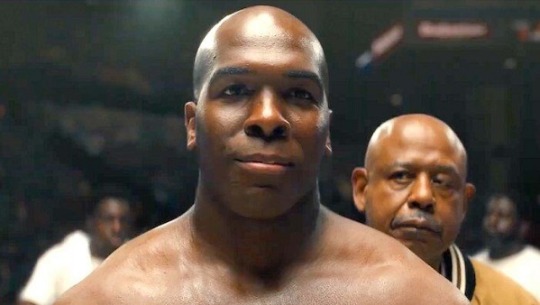
View On WordPress
#ForemanMovie#kermodeandmayo#Austin David Jones#Big Geroge Foreman#bob-the-movie-man#Cinema#Dan Gordon#Film#film review#Forest Whitaker#Frank Baldwin#Frank Baldwin & George Tillman Jr.#George Foreman#George Tillman Jr.#Jasmine Mathews#John Magaro#Kei#Khris Davis#Mark Kermode#Movie#One Man&039;s Movies#One Mann&039;s Movies#onemannsmovies#onemansmovies#Review#Shein Mompremier#Simon Mayo#Sullivan Jones
3 notes
·
View notes
Photo

McLuhan Hot & Cool a collection of essays on Marshall McLuhan.
#books#covers#penguinbooks#penguin books#marshall mcluhan#hot and cool#susan sontag#tom wolfe#george steiner#johnathan miller#frank kermode#1968
19 notes
·
View notes
Photo
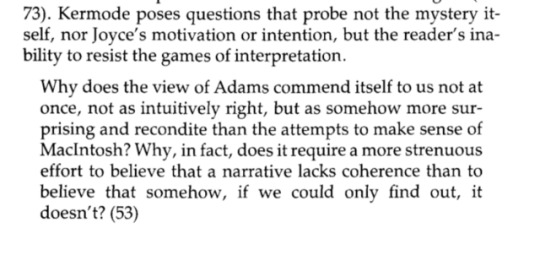
1 note
·
View note
Quote
On the question of how to establish the separateness, the autonomy of things, Robbe-Grillet and Miss Sarraute part company. In contemplating her method, she ceases altogether to be "scientific." Instead she alarmingly intones a hymn to words--all words--for they "possess the qualities needed to seize upon, protect and bring out into the open those subterranean movements that are at once impatient and afraid." (Are those subterranean movements really "impatient and afraid"?) For her, words possess suppleness, freedom, iridescent richness of shading, and by their nature they are protected "from suspicion and from minute examination." (In an age of suspicion, to let words off scot-free is an act of singular trust.) Consequently, once words have entered the other person, they swell, explode, and "by virtue of this game of actions and reactions... they constitute a most valuable tool for the novelist." Which, as the French say, goes without saying. But of course words are not at all what she believes they are. All words lie. Or as Professor Frank Kermode put it in Literary Fiction and Reality: "Words, thoughts, patterns of word and thought, are enemies of truth, if you identify that with what may be had by phenomenological reductions." Nevertheless, Miss Sarraute likes to think that subterranean movements (tropisms) can be captured by words, which might explain why her attitude toward things is so much more conventional that of Robbe-Grillet, who writes: Perhaps Kafka's staircases lead elsewhere, but they are there, and we look at them step by step following the details of the banisters and the risers. This is not true. First, we do not look at the staircases; we look at a number of words arranged upon a page by a conscious human intelligence which would like us to consider, among a thousand other things, the fact of those staircases. Since a primary concern of the human mind is cause and effect, the reader is bound to speculate upon why those staircases have been shown him; also, since staircases are usually built to connect one man-made level with another, the mind will naturally speculate as to what those two levels are like. Only a far-gone schizophrenic (or an LSD tripper) would find entirely absorbing the description of a bannister. Perhaps the most naive aspect of Robbe-Grillet's theory of fiction is his assumption that words can ever describe with absolute precision anything. At no point does he acknowledge that words are simply fiat for real things; by their nature, words are imprecise and layered with meanings--the signs of things, not the things themselves. Therefore, even if Robbe-Grillet's goal of achieving a total reality for the world of things was desirable, it would not be possible to do it with language, since the author (that man full of torments and passions) is bound to betray his attitude to the sequence of signs he offered us; he has an "interest" in the matter, or else he would not write. Certainly if he means to reinvent man, then he will want to find a way of defining man through human (yes, psychological) relations as well as through a catalogue of things observed and gestures coolly noted. Wanting to play God, ambition is bound to dictate the order of words, and so the subjective will prevail just as it does in the traditional novel. To follow Robbe-Grillet's theory to its logical terminus, the only sort of book which might be said to be not a collection of signs of absent things but the actual things themselves would be a collection of ink, paper, cardboard, glue, and typeface, to be assembled or not by the reader-spectator. If this be too heavy a joke, then the ambitious writer must devise a new language which might give the appearance of maintaining the autonomy of things, since the words, new-minted, will possess a minimum of associations of a subjective or anthropomorphic sort. No existing language will be of any use to him, unless it be that of the Trobriand Islanders: those happy people have no words for "why" or "because"; for them, things just happen. Needless to say, they do not write novels or speculate on the nature of things.
Gore Vidal, French Letters: Theories of the New Novel
#gore vidal#the selected essays of gore vidal#alain robbe grillet#nathalie sarraute#frank kermode#franz kafka
1 note
·
View note
Quote
Tick is a humble genesis, tock a feeble apocalypse; and tick-tock is in any case not much of a plot [...] And what happens if the organization is much more complex than tick-tock? Suppose, for instance, that it is a thousand-page novel [...] to maintain the experience of organization we shall need many more fictional devices. And although they will essentially be of the same kind as calling the second of those two related sounds tock, they will obviously be more resourceful and elaborate. They have to defeat the tendency of the interval between tick and tock to empty itself; to maintain within that interval following tick a lively expectation of tock, and a sense that however remote tock may be, all that happens happens as if tock were certainly following.
Frank Kermode in The Sense of an Ending
humans impose plot and narrative upon disorganised time and purely successive events
12 notes
·
View notes
Photo
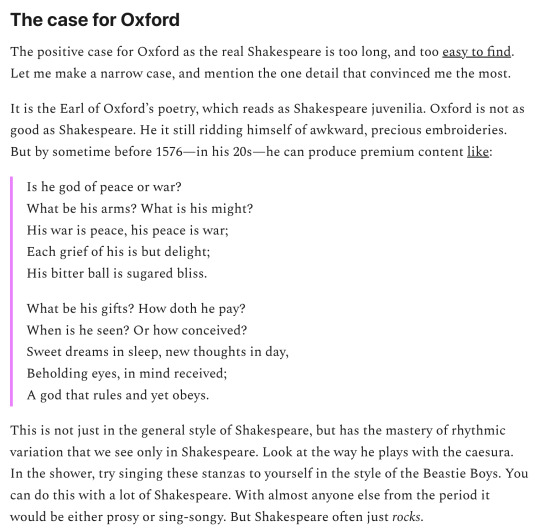
Neoreactionary Curtis Yarvin makes an extended case for the Oxfordian answer to the Shakespeare authorship question. Or what passes for a case anyway. Mostly this great hater of democracy and populism just demagogues for his presumedly puerile audience, labeling Shakespeare—as in the actual Will from Stratford—a “rentboy” and an “illiterate Ghanian immigrant.” His clever idea is to set up the Stratford thesis as an anticipation of today’s diversity-and-equity critique of the canon.
Then he assails a straw man, the supposed Stratfordian belief that Shakespeare was a “democrat,” which nobody believes. Shakespeare fully expresses his view of “people power” in Julius Caesar’s popular sparagmos of Cinna the Poet. And if Julius Caesar held the early American stage and then became the staple American high school text, it was because the drama celebrates not democracy, which Shakespeare didn’t distinguish from resentful and fanatic mob violence, but republicanism in the tragic figure of Brutus.
As for Shakespeare’s overall politics, well, it’s always hard to say with a dramatist, who stages conflicts rather than enumerating theses, and this chameleon poet makes it harder than most. Yarvin quotes every reactionary’s favorite passage, Ulysses’s hymn to degree from Troilus and Cressida, but this is the utterance of a single dramatic character. Rosenkrantz—a sycophantic idiot—argues the same case in Hamlet while kissing Claudius’s ring. By contrast, that play’s hero pronounces what I suspect to be closer to the poet’s own political credo: “The king is a thing of nothing.”
In my reading, Shakespeare is a political nihilist, placing his faith in no institution and no ambitious men. He’s lyrical, where he is lyrical, only about love and private life and nature: precisely the quasi-anarchist (not democratic) anti-politics I find throughout modernity in writers who hail from the lower middle class—Yarvin, like a Marxoid polemicist, abuses the bard with this label too—from Keats to Dickens to Joyce (see my essay on Les Murray for a longer explanation).
But the strongest argument against Oxford’s claim is literary. Does de Vere’s da-dum da-dum doggerel really “rock” like Shakespeare? I count only one potential metrical inversion: in the first foot of the first line, “is” may be stressed for interrogatory emphasis, mainly because the line is short a syllable. But even if you read all the interrogatives as stressed, which you don’t have to, that’s hardly a poetically surprising reversal. Otherwise, the thing tick-tocks robotically like a metronome. Similarly, “the way he plays with the caesura”—what way? The caesura is precisely where we’d expect it to be in each line, not least because Oxford punctuates six of the 10 lines right in the middle, between two balanced sets of iambic feet. I can only conclude that Yarvin relies on an audience ignorant of his subject.
Ulysses’s speech, by contrast, is in Shakespeare’s general style, or at least his mature style, gnarled and enjambed, bristling less with neat Metaphysical paradoxes than with a careering rush of concrete and mingled tropes. Here is play with the caesura, sound mimicking sense: “And, hark, what discord follows! each thing meets...” Likewise, I recall that Frank Kermode thought hendiadys the Shakespearean rhetorical signature, sign of his copiousness and bounty: “Divert and crack, rend and deracinate / The unity and married calm of states.”
A more sophisticated reactionary would say that this apparently disordered and undisciplined style is just what we’d expect from a half-educated rube off the farm who could only read the classics in translation. But what do I know? I myself am just a scion of the anarchic lower middle class, while Yarvin, as he likes to remind us, is a descendant of that very oligarchic bureaucracy from which he promises, eventually, to deliver us.
#william shakespeare#curtis yarvin#edward de vere#literary criticism#neoreaction#poetry#english literature
14 notes
·
View notes